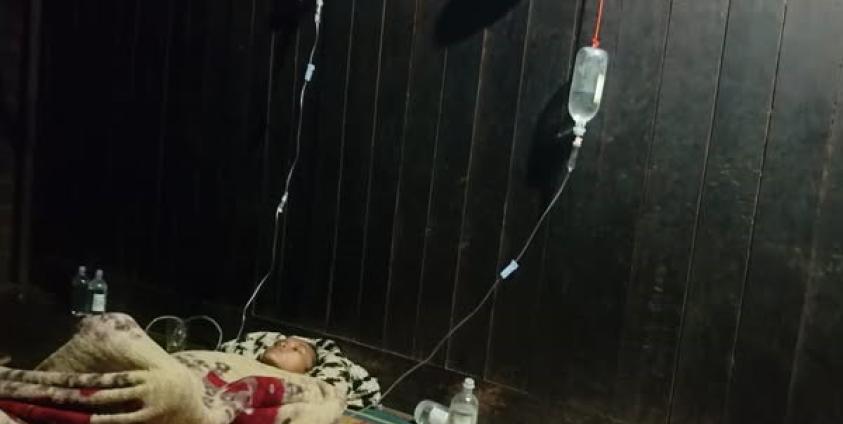Cases of diarrhoea, including suspected cholera have been increasing in southern Chin State townships over the past two months with 481 cases amongst adults and children being reported.
Between mid-December 2024 and the first week of February 2025 there were 148 cases of diarrhoea in Mindat Township, 190 cases in Matupi Township, 24 in Kanpetlet Township, and 124 in Paletwa Township, according to a Chin healthcare organisation operating throughout Chin State that does nor want to be named for security reasons,
Two children under the age of one year died as a result of diarrhoea in Paletwa Township and in Mindat Township another child under one year and an adult died as a result of diarrhoea.
According to a nurse from the aforementioned Chin healthcare organisation, diarrhoea poses the greatest threat to infants under five years of age.
She said: “The disease affects both children and adults, with a higher incidence in children under five. The number of deaths is also higher among children. It is very hard to get infants to drink enough saline during diarrhoea, unlike adults. Administering fluids intravenously is not always an option, as healthcare workers are not available in all villages.”
She added that most of the children affected by diarrhoea in Paletwa Township were under the age of two years.
In Chin State there are many displaced people who are forced to live in temporary accommodation in camps with unsanitary conditions that encourage the spread of diarrhoea, such as toilets that are not fly proof and limited supplies of drinking water.
The aforementioned nurse said: “The main problem is that where there are displaced people it's difficult to properly boil water to clean it for drinking. During these times, most people end up drinking raw [unpurified] water and don't have access to fly-proof toilets. All of these issues can be seen as the follow-up calamities of war. The weakening of people's immune systems only makes things worse. When an outbreak occurs in areas where internet and telephone lines are cut off, the response of local administration officers becomes crucial. They must inform local health workers on behalf of the community. As soon as we receive the news, we rush to the outbreak areas and respond as best we can. Getting information early is key.”
Her organisation offers healthcare support in southern Chin State by distributing essential medicines and rehydration salts to patients. It also distributes water purification tablets and chlorine to purify drinking water and help prevent cases of diarrhoea.
An official from the organisation explained that good public healthcare is only achieved when there is good collaboration between local people and administration officials.
They said: “In the current situation, Chin State is home to different forces with varying political stances. That’s why it becomes vital to ensure that healthcare service providers are not disrupted, healthcare workers can travel freely, and the delivery of medicines is not obstructed. If we receive strong support from the public and relevant authorities to overcome these challenges, our ability to deliver healthcare support will be much more effective.”
Currently, the communities with the highest incidence of diarrhoea in southern Chin State are densely populated villages, including those along highways.







